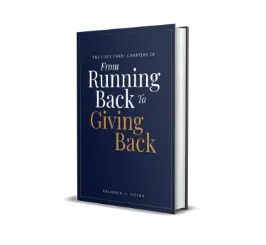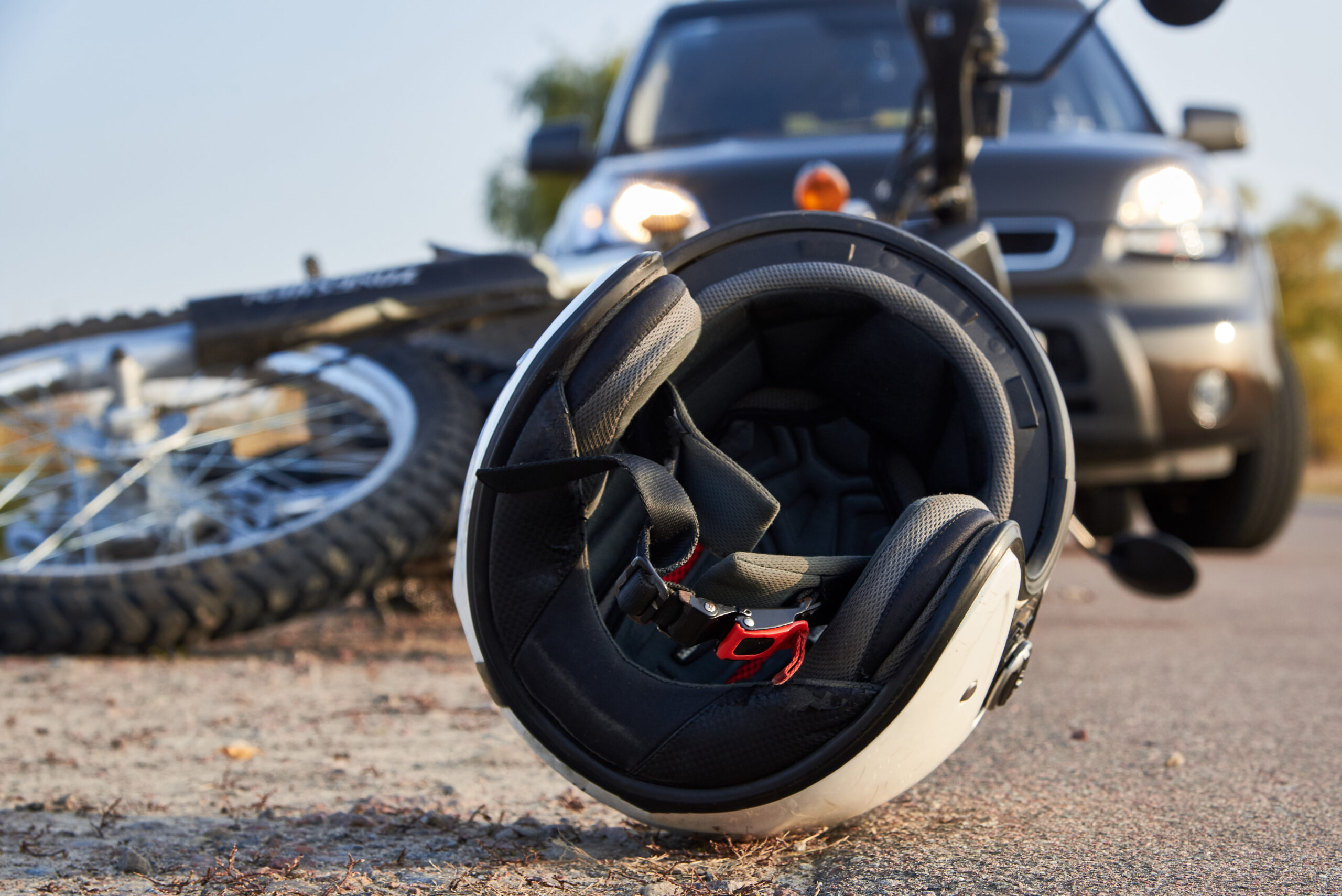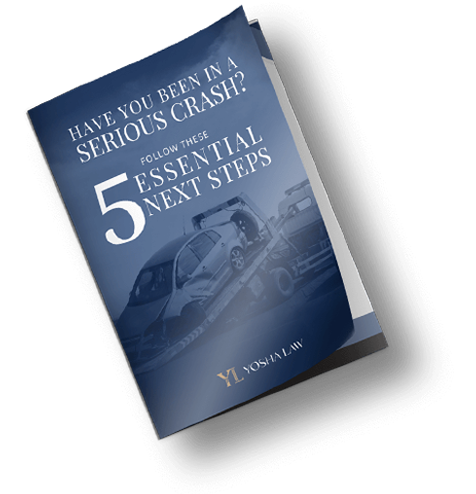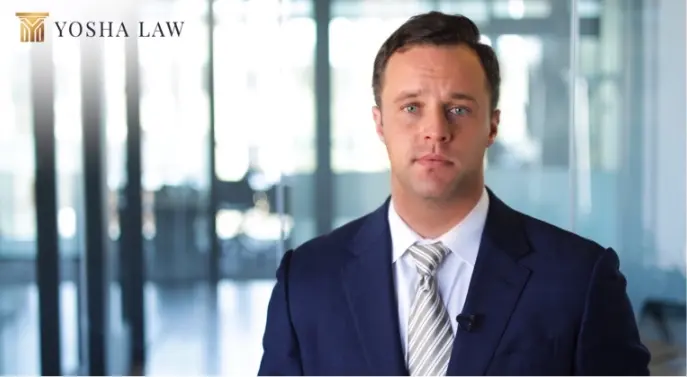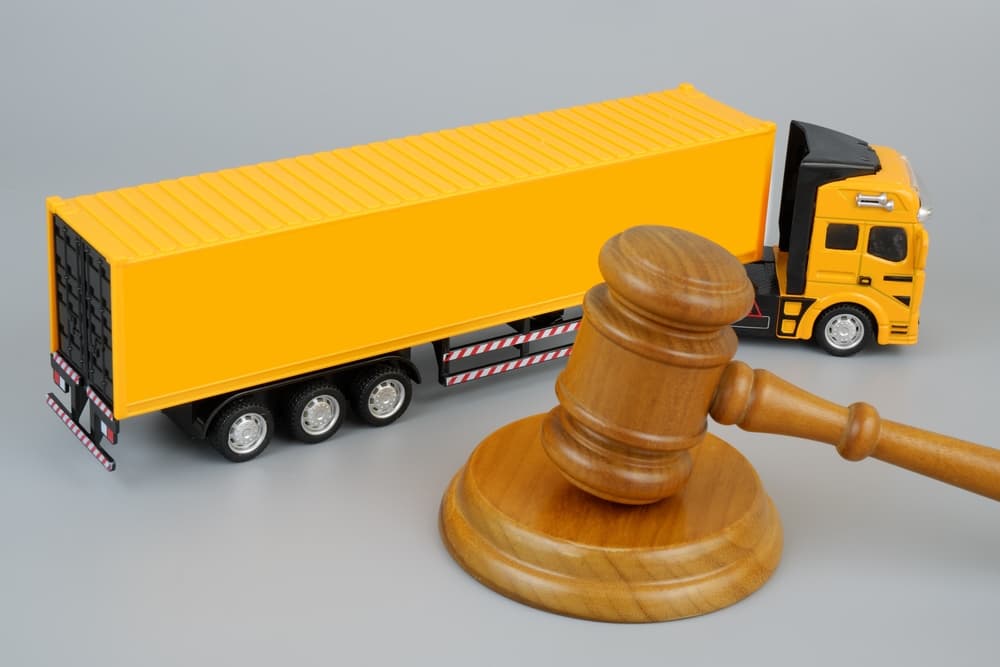
When truck drivers or trucking companies are negligent, serious accidents can happen. In those instances, accident victims may sue the truck driver and the trucking company (or their insurer) for compensation.
Filing a lawsuit against a negligent trucking company involves several steps. First, a truck accident attorney will conduct a thorough investigation, gathering key evidence like driver logs, maintenance records, and witness statements. They will then file a formal complaint in court and begin the discovery process, exchanging information with the trucking company’s lawyer. Your attorney will handle negotiations with the insurance company, aiming to reach a fair settlement. If settlement talks fail, they can take your case to trial.
A skilled truck accident lawyer can maximize your compensation by ensuring that all damages are accounted for, including medical expenses, lost income, pain and suffering, and potential punitive damages. Their experience helps to ensure a successful outcome for your case.
How Do Trucking Companies Cause Accidents?
Trucking companies can cause accidents through several forms of negligence. These mistakes often stem from poor management, insufficient training, and unsafe practices that put everyone at risk.
One of the most common causes of trucking accidents is driver fatigue. Truck drivers are often under pressure (i.e. by trucking companies) to meet tight deadlines, leading them to drive for long hours without taking adequate breaks. This can result in drowsy driving, impairing reaction times, attention, and judgment, all of which can cause serious accidents.
Improper truck maintenance is another significant issue. Trucks require regular inspections and maintenance to ensure that all components, such as brakes, tires, and lights, are functioning properly. However, trucking companies sometimes fail to keep their vehicles in good working condition, leading to mechanical failures while on the road. For example, worn-out brakes can make it impossible for a truck to stop in time, causing collisions.
Overloading is also a common form of negligence. Each truck has a weight limit, and exceeding that limit can cause the truck to be more difficult to control. Overloaded trucks are harder to stop, more likely to tip over, and place more strain on the vehicle’s components, all increasing the risk of accidents. Sometimes, trucking companies pressure drivers to carry more than the legal load, ignoring safety standards for the sake of profits.
Inadequate driver training and supervision can also contribute to accidents. Drivers must be trained to handle large trucks safely and to understand the specific risks they face, such as blind spots and stopping distances. If a trucking company fails to properly train drivers or provide them with enough supervision, it can result in unsafe driving behaviors and mistakes on the road.
Additionally, reckless driving by truckers, such as speeding, tailgating, or using a mobile phone while driving, is a serious problem. Trucking companies should implement policies that discourage such behavior, but if they do not enforce safe driving practices, accidents are more likely to happen.
Finally, poor cargo securement can lead to truck accidents. If cargo is not properly loaded or secured, it can shift or fall off the truck, causing accidents that affect other vehicles on the road.
Proving that a Trucking Company Caused an Accident
To prove that a negligent trucking company caused your accident, you need to gather and present evidence that shows the company was at fault. This involves a thorough investigation into the circumstances surrounding the crash, as well as identifying the specific acts of negligence that led to the accident. Here are some steps and types of evidence that can help your truck accident attorney build your case.
- Driver Logs and Hours of Service Records: One of the first pieces of evidence to collect is the truck driver’s logbook or electronic hours of service records. Federal law requires truck drivers to maintain accurate records of their driving hours, including breaks. If the trucking company allowed the driver to work beyond the legal limit, leading to driver fatigue, this can be used to prove negligence.
- Maintenance and Inspection Records: You can also request the trucking company’s maintenance and inspection logs for the truck involved in the accident. These records can show whether the truck was regularly maintained and if any critical components (like brakes or tires) were in poor condition. If maintenance was neglected, it may be a sign that the company’s actions contributed to the accident.
- Black Box Data: Many commercial trucks are equipped with an onboard data recorder, also known as a “black box.” This device captures information like the truck’s speed, braking patterns, and engine performance. If the truck was speeding, braking too late, or showing signs of mechanical failure, this data can provide strong evidence of negligence.
- Witness Statements and Dashcam Footage: Eyewitness accounts can be invaluable in showing how the accident occurred. Witnesses may describe the truck’s behavior before the crash, such as whether the driver was speeding or driving erratically. Additionally, many trucks are now equipped with dashcams that record the road ahead. If available, this footage can provide visual evidence of the truck’s actions during the crash.
- Traffic and Accident Reports: Police reports and accident documentation can also provide important evidence. These reports often include details on the cause of the crash, witness statements, and any violations of traffic laws by the truck driver. If the officer cites the trucking company or driver for negligence, this can further strengthen your case.
- Trucking Company Policies: If the company has a history of unsafe practices, such as pressuring drivers to exceed weight limits or drive without breaks, evidence of these policies can show a pattern of negligence.
By gathering and presenting these types of evidence, you can build a strong case to prove that the trucking company’s negligence was a direct cause of your accident.
Steps of Filing a Lawsuit Against a Trucking Company
Filing a lawsuit against a negligent trucking company for a truck accident involves several key steps. A skilled truck accident attorney can guide you through the process, ensuring that you meet all the necessary legal requirements and improve your chances of a successful outcome.
The first step is to meet with an experienced truck accident attorney. During this consultation, the attorney will review the details of your case, including the accident, your injuries, and any evidence you have. They will assess whether the trucking company was negligent and if you have a strong case for compensation. If they agree to represent you, they will begin gathering evidence and preparing for the next steps.
Your lawyer will then conduct a thorough investigation into the accident. This includes obtaining the driver’s logs, the truck’s maintenance records, and any other relevant documents from the trucking company. They will also gather witness statements, review police reports, and look for any available dashcam or surveillance footage. A skilled attorney knows how to secure vital evidence before it gets lost or destroyed.
Once the evidence is collected, the lawyer will file a lawsuit in the appropriate court. This document, called a “complaint,” outlines the facts of the case, the negligence of the trucking company, and the damages you are seeking.
After the lawsuit is filed, both sides enter the discovery phase. This is when the plaintiff (you) and the defendant (the trucking company) exchange information. Your attorney will send formal requests for documents, conduct depositions (interviews under oath) with key witnesses, and ask for more details about the trucking company’s policies and practices. This phase can be lengthy, but it helps both sides understand the strength of their case.
In many cases, the trucking company or its insurer may offer a settlement before the trial. Your attorney will negotiate on your behalf, ensuring you receive fair compensation for medical bills, lost income, pain and suffering, and other damages. A skilled attorney knows how to push for a settlement that fully compensates you.
If a fair settlement cannot be reached, the case may go to trial. Your attorney will represent you in court, presenting evidence, questioning witnesses, and making arguments to prove the trucking company’s negligence. If you win, the jury will award compensation for your injuries and losses.
Throughout the entire litigation process, a skilled truck accident attorney will handle all of the legal aspects, allowing you to focus on your medical recovery.
Most Common Injuries in Truck Crashes
Victims of trucking accidents resulting from negligent trucking companies can suffer a wide range of serious injuries. These injuries can be life-threatening and often require extensive medical care. The severity of these injuries depends on factors like the speed of the truck and the specific type of collision that occurs.
One of the most common injuries in trucking accidents is whiplash, which occurs when the victim’s head is forcefully jerked forward and backward. This can damage the neck muscles and ligaments, leading to stiffness, pain, and limited mobility. In severe cases, it may cause long-term issues like chronic pain or nerve damage.
Another frequent injury is spinal cord damage, which can result in paralysis or permanent disability. The force of a truck collision can compress or sever the victim’s spinal cord, leading to partial or complete paralysis. Victims may require surgeries, physical therapy, and long-term care to manage the effects of these injuries.
Broken bones are also common in trucking accidents. Due to the force of the crash, victims can suffer fractures in their arms, legs, or ribs. These injuries may require surgery, casts, or even joint replacement in severe cases. Some fractures may cause permanent mobility issues, requiring long-term rehabilitation.
Head injuries, including concussions and other traumatic brain injuries (TBIs), are another risk in truck accidents. A victim’s head can strike the steering wheel, dashboard, or side windows, leading to brain damage. TBIs often come with symptoms like headaches, dizziness, memory loss, or permanent cognitive impairment. Immediate treatment may include surgery, medication, and rehabilitation.
Victims can also suffer internal injuries such as damage to the organs, like the liver, kidneys, or lungs. These injuries often require emergency surgery and extended hospitalization. Internal bleeding, if not treated quickly, can be fatal.
How Much is a Truck Accident Lawsuit Worth?
The value of a truck accident lawsuit varies widely based on the details of the case, such as the severity of the victim’s injuries, the extent of the trucking company’s negligence, and the amount of evidence available. There is no set amount that a truck accident lawsuit is worth, but compensation can be substantial due to the serious nature of the injuries often involved.
Victims of truck accidents may recover different types of damages. These are typically divided into economic, non-economic, and punitive damages.
Economic Damages:
Economic damages are designed to compensate the victim for financial losses resulting from the trucking accident. These damages are easier to calculate because they involve actual, measurable costs. Some common types of economic damages include:
- Medical Expenses: These includes the cost of emergency care, hospital stays, surgeries, medications, and any ongoing treatments or rehabilitation required. For severe injuries, medical expenses can total tens or even hundreds of thousands of dollars.
- Lost Income: If the victim is unable to return to work due to the trucking accident, they may recover compensation for lost income. This includes both past lost income and potential future earnings if the injuries are long-term or permanent.
- Property Damage: The victim’s vehicle, and possibly other personal property, may become damaged in the accident. Compensation can cover repair costs or the replacement value of the property.
Non-Economic Damages:
Non-economic damages are more subjective and compensate for the emotional, psychological, and quality-of-life losses the victim has suffered due to the truck accident. These damages may include:
- Pain and Suffering: This includes both physical pain from injuries and emotional distress due to the trauma of the accident. For victims with permanent disabilities or long-term pain, this compensation can be substantial.
- Loss of Consortium: If the victim’s injuries affect their relationship with their spouse, such as loss of companionship or intimacy, the spouse may be entitled to compensation for the emotional effects.
- Emotional Distress: Victims who suffer from anxiety, depression, or post-traumatic stress disorder (PTSD) after the truck accident can seek compensation for the mental toll the crash has caused.
Punitive Damages:
Punitive damages are awarded in rare cases where the defendant’s conduct was especially reckless or malicious. For example, if the trucking company knowingly allowed a driver with a history of dangerous behavior to operate a truck, punitive damages may be awarded to punish the company and deter similar actions in the future. These damages are not tied to the victim’s actual losses but serve as a way to send a strong message against particularly egregious behavior.
The total worth of a truck accident lawsuit depends on the extent of the damages and how the evidence supports the victim’s case. A skilled attorney can calculate the claim’s total value and work to secure fair compensation for all losses.
Call an Experienced Truck Accident Lawyer in Your Area Today
If you suffered injuries in a recent accident that a negligent trucking company caused, you may be eligible for compensation. A skilled personal injury attorney can thoroughly investigate your accident circumstances, gather evidence, and pursue a claim or lawsuit against the trucking company. They will also work hard to maximize the compensation you receive for your injuries and other losses.

